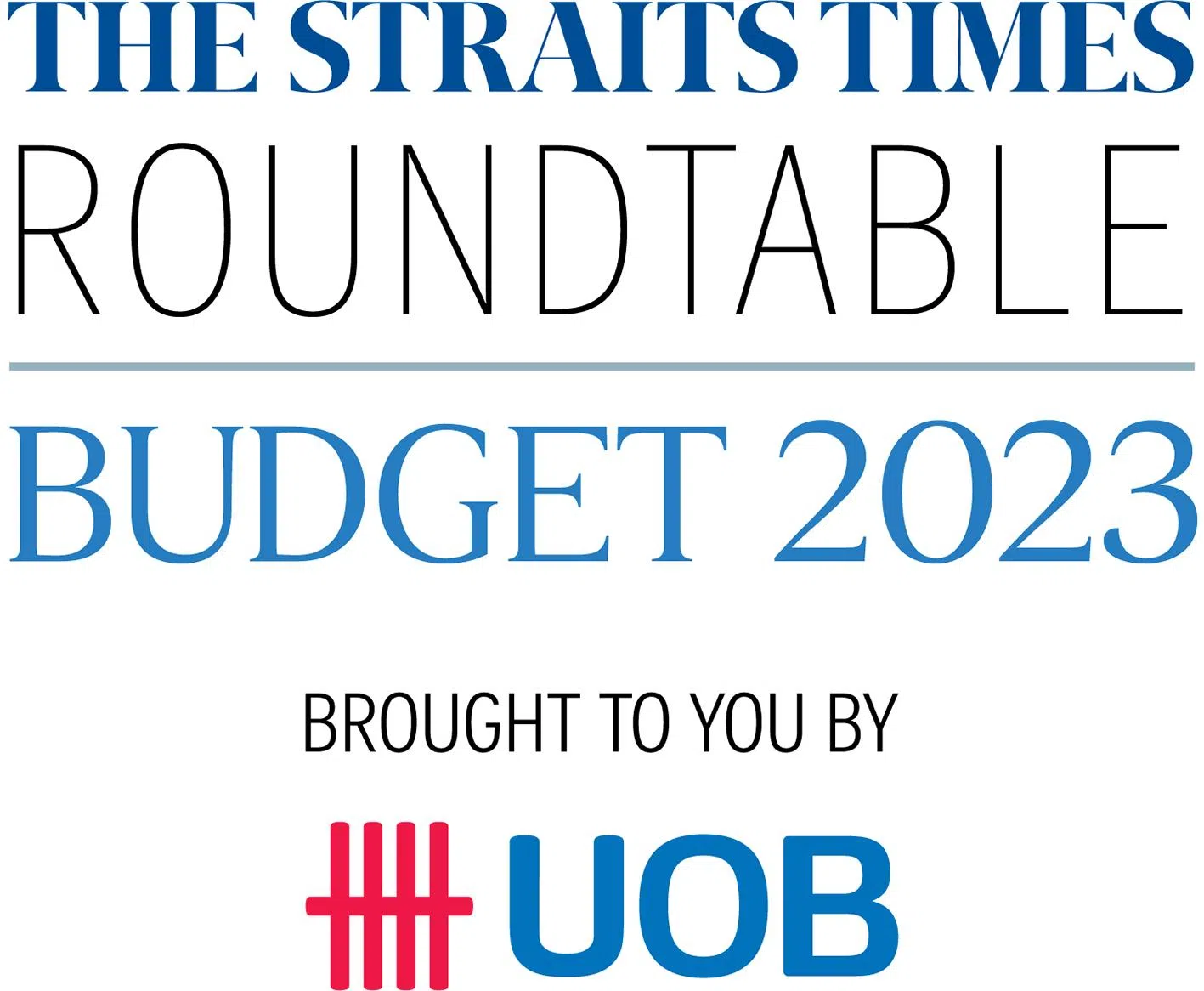Budget 2023 aims to assist S’pore families with cost of living and the workforce with upskilling: ST-UOB panel
Sign up now: Get ST's newsletters delivered to your inbox
The key points raised during the ST-UOB roundtable – moderated by ST associate editor Vikram Khanna – include the impact of inflation on business and the tough choices that lie ahead for Singapore.
Follow topic:
SINGAPORE - Budget 2023 aims to help Singaporean families cope with the rising cost of living post-Covid-19, as well as assist workers to upskill themselves, said panellists at a round-table discussion on Wednesday.
The discussion on Budget 2023 was organised by UOB and The Straits Times, and moderated by ST associate editor Vikram Khanna. It was held at The Straits Times newsroom studio in Toa Payoh.
This year’s Budget addresses strategic issues, especially how to restructure the Singapore economy and position the country to become more competitive,
“We are now moving away from the pandemic situation – in this Budget, there is something for everybody, from businesses to families to individuals, to manage inflation and cost pressures,” said fellow panellist Suan Teck Kin, head of research at UOB.
Mr Patrick Tay, assistant secretary-general of the National Trades Union Congress (NTUC), who was also part of the discussion, said the Budget placed emphasis on upskilling workers, given the tight labour market and shrinking workforce.
He added that this was to raise the overall productivity to keep pace with any disruption, changes and challenges.
One Budget 2023 announcement was on new jobs-skills integrators,
Examples of existing institutions that may be well placed to be jobs-skills integrators include trade associations and chambers, unions and training providers.
SBF has received feedback from employers that they are having a hard time finding the right talent for jobs, said Mr Ong.
“Having integrators is not a blind policy tool – it is a targeted tool that can help workers find a suitable job for their skill sets.”
This is how employees can get quality and relevant training, so that the job training they receive also addresses the needs of the company, said Professor Annie Koh, professor emeritus of finance (practice) and senior adviser to the Business Families Institute at Singapore Management University.
Companies will need to invest in research and development (R&D) to create value for themselves, said Mr Suan.
The new Enterprise Innovation Scheme
It will raise tax deductions to 400 per cent of qualifying expenditure for businesses working on R&D carried out in Singapore, or innovation carried out with polytechnics and the Institute of Technical Education.
The Budget measures also included help for lower-wage workers, such as the Progressive Wage Credit Scheme getting a $2.4 billion top-up. The scheme is providing transitional support for employers from 2022 to 2026, and encourages employers to voluntarily raise the wages of their lower-wage employees.
NTUC is looking into uplifting workers by not only raising wages, but also by raising their productivity with skills training and qualifications, said NTUC’s Mr Tay.
“We’ve also started looking at the tradesmen sector to attract more people – we all need plumbers and electricians,” he added.
The panel also discussed the measures announced to address Singapore’s low birth rate and ageing population, the additional $3,000 Baby Bonus cash gift
The panellists noted that sustainability was not mentioned as much in this year’s Budget, and expressed hope it would get more targeted attention in the future.

The Straits Times

